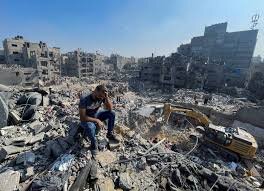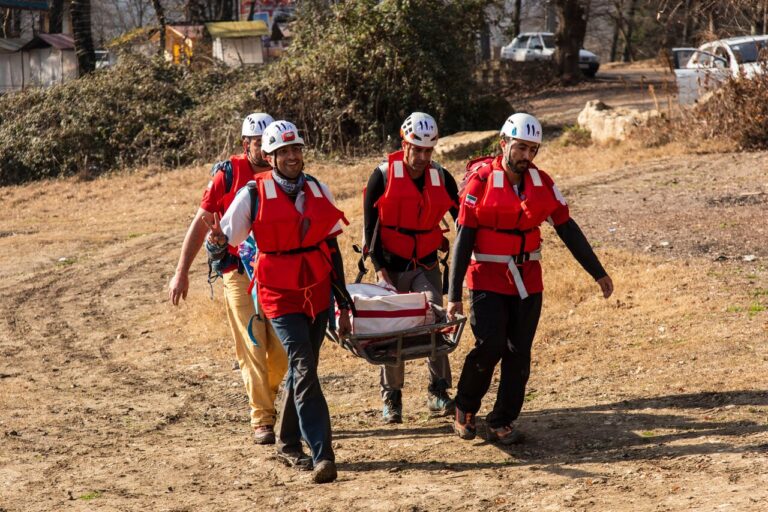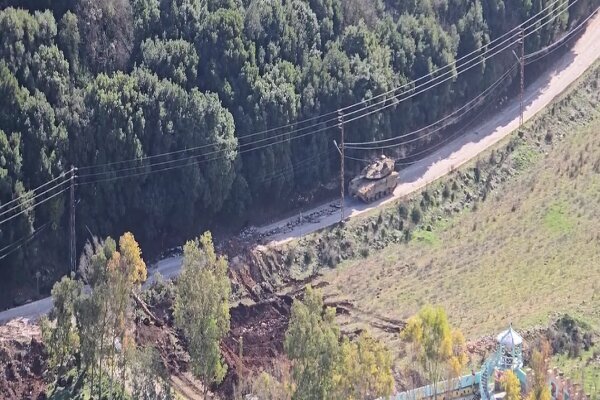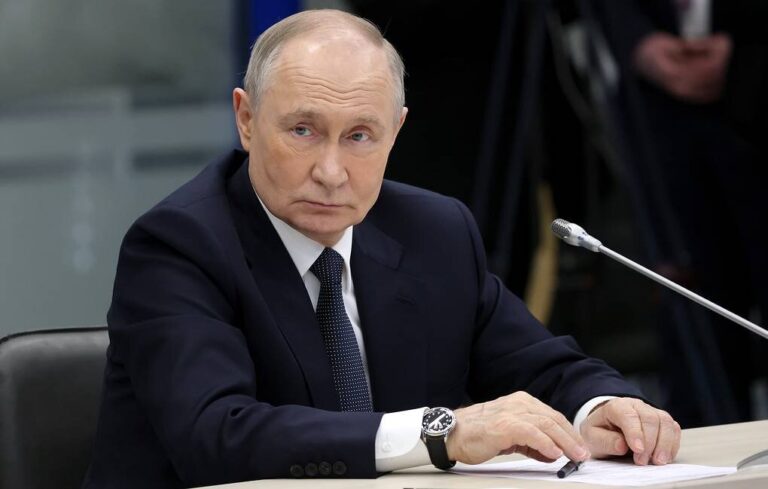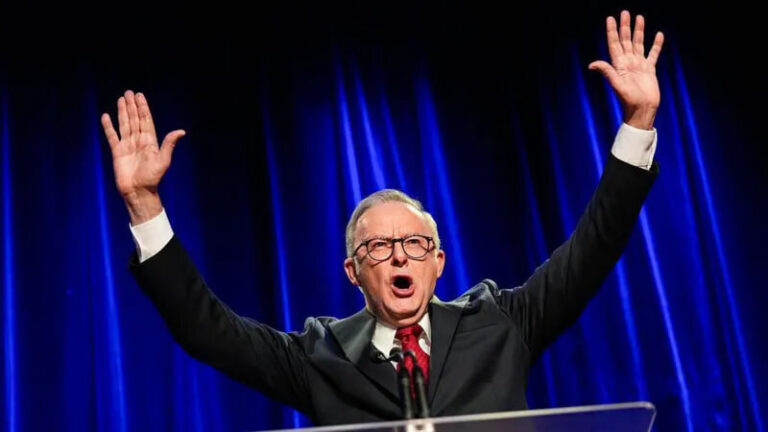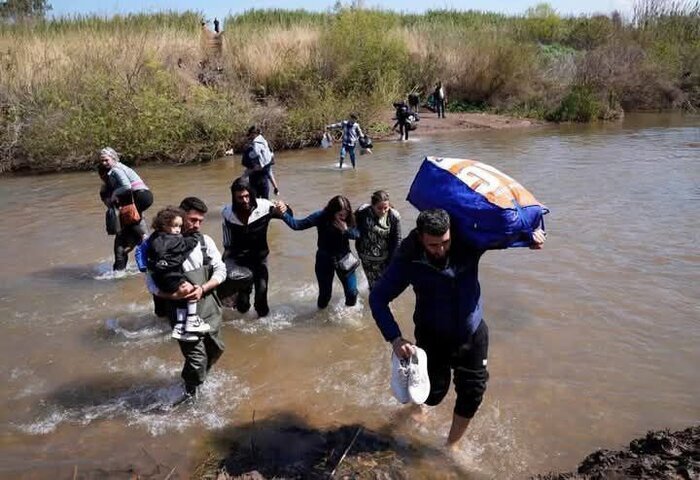West’s New Rhetoric on Gaza Genocide: Action Lags Behind Words as Israel’s Assault Continues
In recent months, there has been a notable shift in the rhetoric surrounding Israel’s actions in Palestine, as mainstream voices begin to acknowledge the dire humanitarian crisis unfolding in Gaza. For over a year and a half, criticism of Israel’s military actions was met with silence or denial, but now, liberal-conservative forces are starting to express their concerns about the situation, marking an important turning point in the discourse.
French President Emmanuel Macron openly stated that “the humanitarian situation in Gaza is intolerable,” a sentiment that is echoed by various media outlets such as The Guardian and the Dutch newspaper NRC. These sources are finally reporting on the allegations of genocide that many experts and Palestinian voices have raised since the onset of this conflict.
This recognition of genocide, albeit faint, is a step forward compared to the previous silence and complicity. It is crucial to analyze the motivations and implications behind these statements to determine whether they represent a genuine rediscovery of moral responsibility or are merely an attempt to mitigate the growing outrage over the humanitarian disaster in Gaza.
- European voices are beginning to condemn Israel’s military actions.
- There is a noticeable alignment between governments and mainstream media in their rhetoric.
- The shift may reflect a collective awakening to the realities of the ongoing conflict.
Despite these condemnations, the rhetoric has yet to translate into meaningful action. Observers note that while some European leaders are finally speaking out against the atrocities, their words do not correspond with any significant changes in policy. The alignment of these statements raises concerns about the intentions behind them, particularly given the historical complicity of European nations in supporting Israel’s military actions.
Gaza has suffered tremendously, with more than 100,000 tons of explosives reportedly dropped on a population of two million. As author Omar El Akkad poignantly noted, “One day, everyone will have always been against this,” highlighting the tendency for individuals to align with the right side of history only when it becomes safe to do so.
However, the ongoing genocide in Gaza continues, with little action from those newly vocal critics. Instead of halting their support, many European nations remain politically and militarily aligned with Israel, thus maintaining the status quo while merely altering their language regarding the situation.
Some analysts argue that this rhetorical shift is a desperate attempt to address the legacy of European complicity in the ongoing genocide. As the death toll rises, public opinion in Europe has shifted, with fewer people accepting the justifications of “self-defense” and “demilitarization of Hamas” that have previously underpinned Israel’s actions.
It appears that establishment forces within the European Union (EU) are attempting to regain control over the narrative surrounding Israel’s actions to neutralize growing criticism from global solidarity movements. These movements have exposed not only Israel’s alleged genocide but also its role within a larger framework of global military and surveillance expansion.
- Increased public pressure is pushing EU leaders to reassess their stance on Israel.
- Establishment forces fear the rise of grassroots movements advocating for Palestinian rights.
- Critics suggest that the language shift may be a tactic to silence more radical critiques of Israel’s policies.
The distancing of some EU states from Israeli Prime Minister Netanyahu’s government has been minimal and largely symbolic, with trade ties remaining intact. This approach does not fulfill their obligations under international law to prevent and stop genocide but rather serves to placate public anger.
The narrative surrounding Israel’s actions has become increasingly complex, with some establishment figures suggesting a multilateral approach to sanctioning Israel. However, this strategy often serves to deflect urgent calls for action, delaying meaningful intervention in the face of escalating violence.
In contrast, unilateral measures similar to those imposed on Russia following its invasion of Ukraine—such as arms embargoes and trade freezes—are conspicuously absent in discussions about Israel. This discrepancy raises questions about the sincerity of the recent condemnations and whether they are merely intended to control public sentiment rather than effect real change.
To discern the true intentions behind these sudden changes in rhetoric, it is essential to watch for calls to action. If these voices advocate for concrete measures to halt the genocide and end complicity, they should be welcomed. However, if their statements remain confined to acknowledgment without actionable steps, they risk being seen as a superficial response to growing public indignation.
It is vital to denounce any attempts to dismiss the ongoing genocide against Palestinians as just another political issue. Instead, we must hold accountable those who have enabled these atrocities, ensuring that they do not return to a state of business as usual while the suffering continues.
In conclusion, the recent acknowledgment of the humanitarian crisis in Gaza by mainstream voices is a complex development that must be scrutinized closely. As we navigate these turbulent waters, the stakes are incredibly high for the lives and futures of countless individuals caught in the conflict.
Authored by Marina Calculli, an Assistant Professor in International Relations at Leiden University, and Gjovalin Macaj, an Assistant Professor in United Nations studies in peace and justice, this analysis aims to shed light on the ongoing discourse surrounding the conflict in Palestine and the implications of recent statements made by European leaders.
